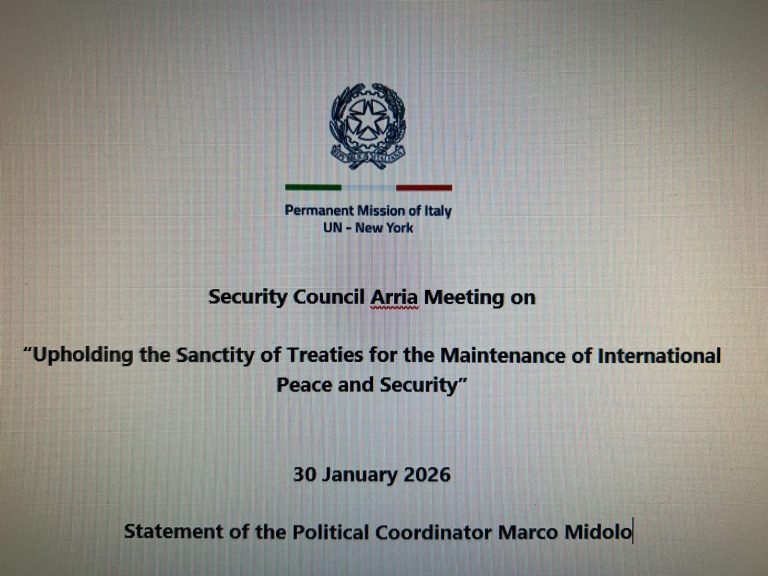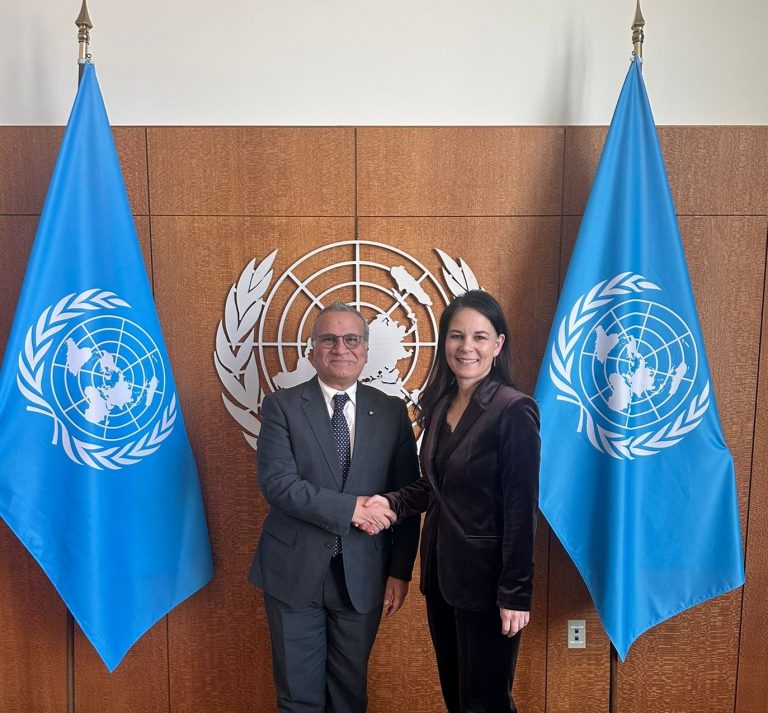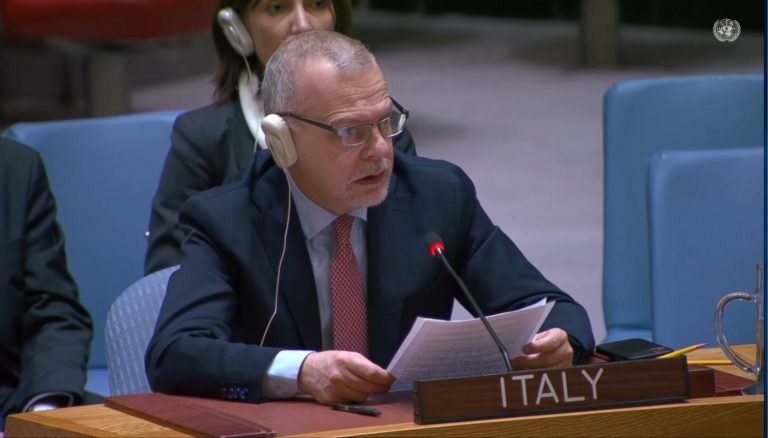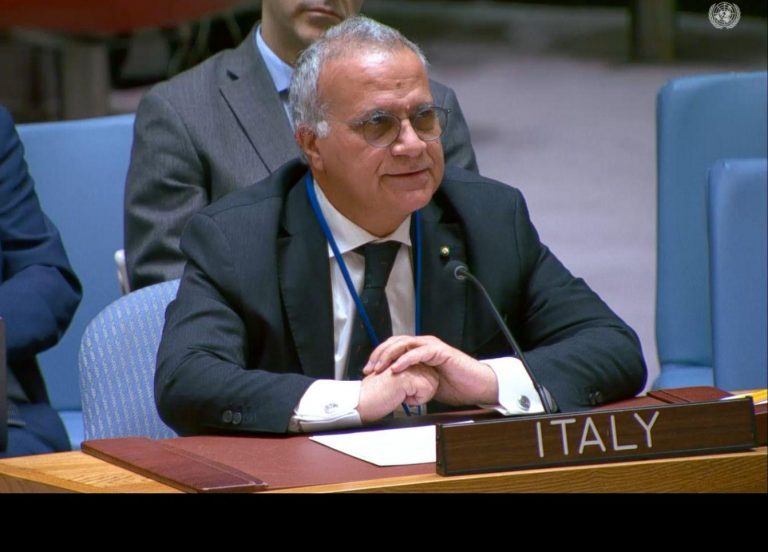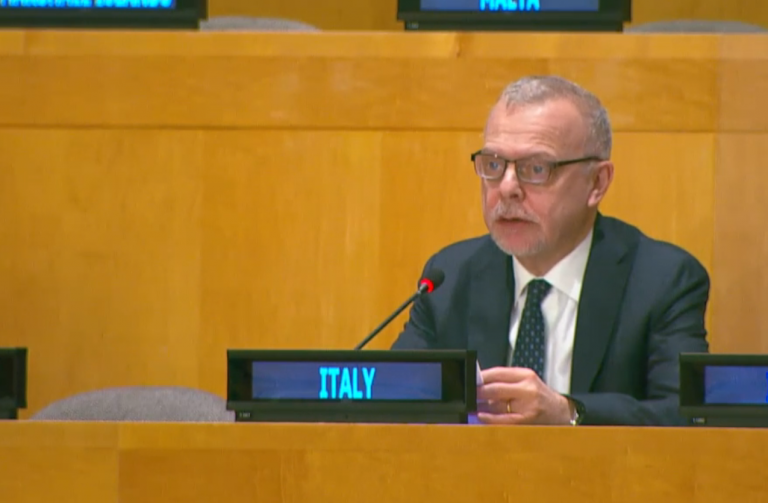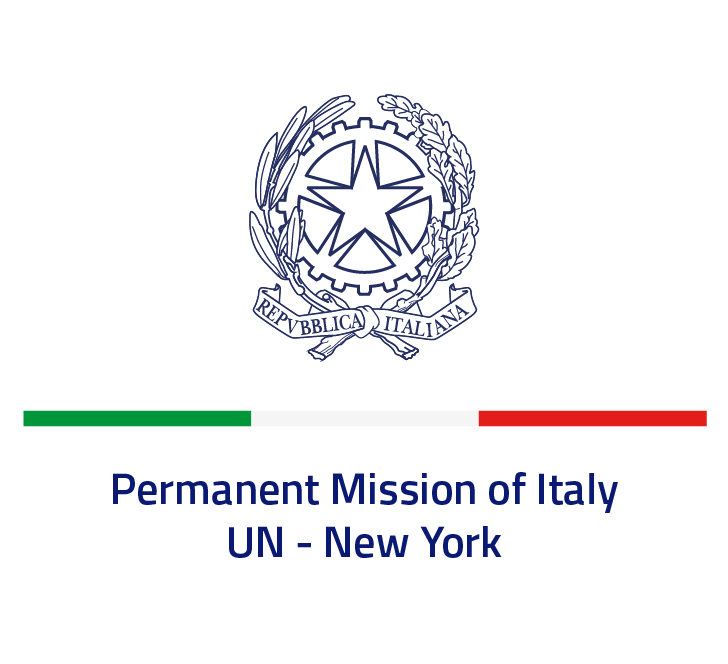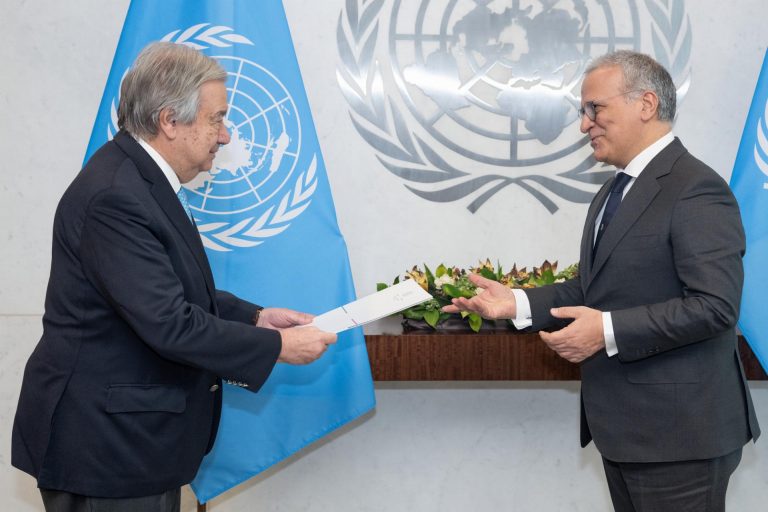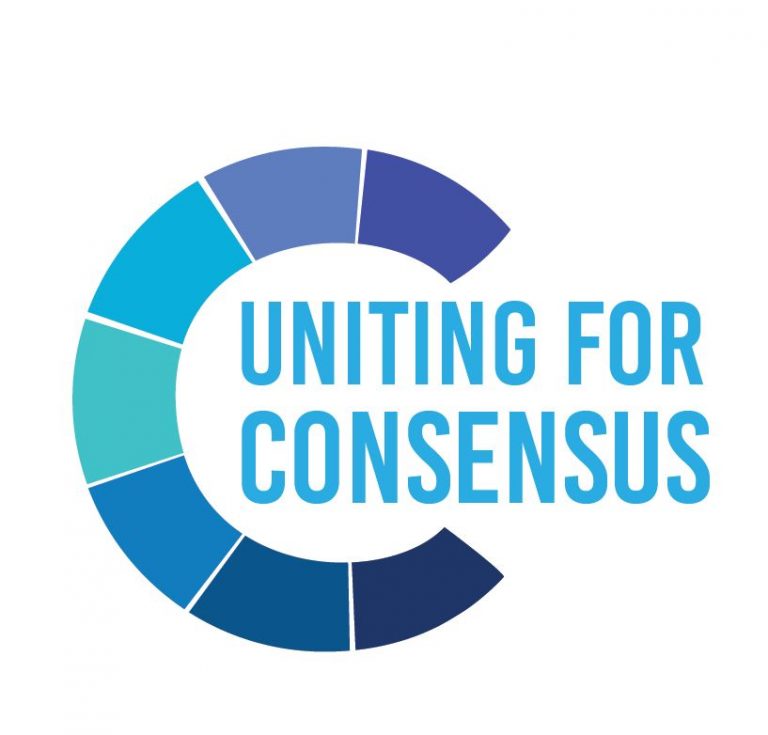At the United Nations today – in the context of Women, Peace and Security Week, the event organized by Italy with UN Women (the largest U.N. agency for women’s rights), the Mediterranean Women Mediators Network (MWMN) and Morocco was held to turn the spotlight on the crucial role of women mediators in peace efforts.
The event was “a tribute to women mediators in the field, but also an opportunity to start a critical reflection on the challenges and opportunities we face,” according to the welcoming words of Ambassador Massari, Permanent Representative of Italy to the UN.
After the opening of the proceedings by Loredana Teodorescu, head of the Mediterranean Women Mediators Network (MWMN) and President of WIIS Italy (Women in International Security), the program featured an all-female panel consisting of Begona Olazabal, UN Women Representative in Libya, Ouided Bouchamaoui, 2015 Nobel Peace Prize Laureate and MWMN member, Anna Cervi, former Country Director of the Norwegian Refugee Council in Syria and MWMN member, Farida Jaidi, diplomat and founding member of Moroccan Women Mediators. Delivering the conclusions was Irene Fellin, NATO Special Representative for the WPS (Women, Peace and Security) agenda.
The Mediterranean Women Mediators Network (MWMN) is an Italian “best practice” throughout the world, launched at the initiative of our country in October 2017 to promote gender equality and foster the inclusion of women in peace processes, mediation efforts and peacebuilding in the Mediterranean region. Today it includes 60 women mediators from 21 countries. It is a source of pride for Italy to see how this initiative has led to the creation of a broader Global Network of the Alliance of Regional Women Mediators, which since 2019 unites the voices of 6 different regions of the world in a call to accelerate the implementation of UN Resolution 1325. This is the first ever Resolution passed by the Security Council denouncing the impact of war on women and valuing their contribution to conflict resolution for lasting peace. Italy has strongly supported Resolution 1325 since its adoption in 2020.
“Women have proven to be extremely effective in protecting civilians, accessing communities and building trust with local populations, particularly the most vulnerable. The same effectiveness is demonstrated in the areas of Peacebuilding and Peacekeeping. A peace agreement is 20 percent more likely to last at least two years and 35 percent more likely to last 15 years when women are included in peace processes,” Ambassador Massari pointed out.
Despite such widely documented evidence, globally only 13 percent of mediators, 6 percent of negotiators and 6 percent of signatories to peace agreements are women. Four out of five peace agreements ignore the gender dimension, not including any women mediators or signatories.
“Creating spaces for women in mediation requires targeted investment, and more resources for their training,” was the message that emerged from the table.
The inclusion of women in peace processes is one of the priority themes of Italy’s traditional commitment to gender equality at the UN. That is why Italy has increased in 2022 its financial support for UN Women, the largest UN agency for women’s rights, of which it will assume the Vice-Presidency of its Governing Council in January 2023








